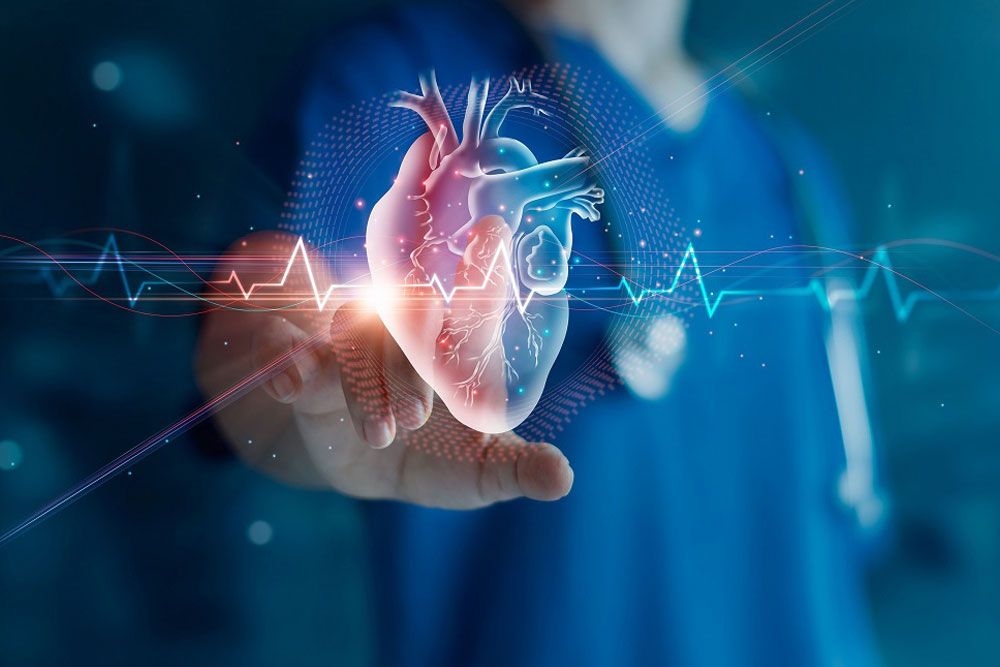Heart monitoring involves using various diagnostic tools to continuously assess the heart’s activity, detect abnormalities, and manage ongoing cardiac conditions. At Florida Cardiology Associates LLC, we offer advanced heart monitoring services at our Trinity, FL, clinic to ensure accurate diagnosis and effective management of heart health.
Symptoms Indicating the Need for Heart Monitoring
Heart monitoring may be recommended if you experience heart problem symptoms requiring continuous observation. Common symptoms include:
- Irregular heartbeats or palpitations
- Dizziness or lightheadedness
- Fainting or near fainting
- Shortness of breath
- Chest pain or discomfort
- Unexplained fatigue
- Swelling in the legs, ankles, or feet
The Importance of Heart Monitoring
Heart monitoring is crucial for diagnosing and managing a range of cardiac conditions, including arrhythmias, heart failure, and ischemic heart disease. Continuous monitoring helps detect irregular heart rhythms, silent heart attacks, and other abnormalities that may not be evident during a routine check-up. This proactive approach enables timely intervention and tailored treatment plans.
Heart monitoring for patients with chronic heart conditions provides essential data that guides medication adjustments, lifestyle modifications, and other therapeutic strategies. Cardiologists can prevent complications, optimize treatment outcomes, and improve overall heart health by continuously tracking heart activity.
The Heart Monitoring Process
Our heart monitoring process is designed to be thorough and patient-focused. The steps involved include:
- Initial Consultation: Your cardiologist will review your medical history, discuss your symptoms, and determine the appropriate heart monitoring device.
- Preparation: You will receive instructions on preparing for the monitoring process, including any necessary lifestyle adjustments.
- Device Placement: Depending on the type of monitor, a small device will be attached to your chest or implanted under the skin to record your heart activity continuously.
- Continuous Monitoring: The device will track your heart’s activity over a specified period, ranging from 24 hours to several weeks.
- Data Analysis: Your cardiologist will analyze the recorded data to identify any abnormalities and determine the underlying cause of your symptoms.
- Results Discussion: Your cardiologist will discuss the results with you and recommend any necessary treatments or follow-up tests.
Preventing Heart Conditions
Preventative measures are essential for maintaining heart health and reducing the risk of developing severe cardiovascular conditions. Adopting a heart-healthy lifestyle, including a balanced diet, regular exercise, and avoiding smoking, is crucial. Managing stress and maintaining a healthy weight also play vital roles in preventing heart conditions.
Regular medical check-ups and heart monitoring are vital for early detection of potential issues. By staying proactive with your heart health, you can significantly reduce the risk of developing severe cardiovascular conditions and maintain overall well-being.
Improving Heart Health Through Continuous Monitoring
Heart monitoring patients have a positive outlook for managing and treating cardiac conditions. Continuous monitoring provides critical insights that guide effective treatment plans, improving overall health outcomes. Florida Cardiology Associates LLC is committed to supporting your heart health through advanced diagnostics and personalized care.
By following the guidance of our experienced cardiologists, patients can effectively manage their heart health, enhance their quality of life, and reduce the risk of future cardiac events. We aim to provide all our patients the best possible care and support.
Frequently Asked Questions (FAQs)
1. What types of heart monitors are available?
Common types include Holter monitors, event monitors, and implantable loop recorders, each suited for different monitoring needs.
2. Is heart monitoring painful?
No, heart monitoring is noninvasive and painless. The adhesive electrodes or the implanted device may cause slight discomfort.
3. How long will I need to wear the heart monitor?
The duration depends on your specific condition and the type of monitor used, ranging from 24 hours to several weeks.
4. Can I continue my daily activities while wearing a heart monitor?
Yes, most monitors are designed to be worn during normal activities. Your cardiologist will provide specific guidelines.
5. Are there any risks associated with heart monitoring?
Heart monitoring is generally safe, but your cardiologist will discuss any potential risks and how to minimize them.
Taking Proactive Steps for Heart Health
Scheduling heart monitoring is a proactive step towards maintaining and improving your heart health. At Florida Cardiology Associates LLC, we are dedicated to providing comprehensive cardiovascular care with the latest diagnostic and treatment technology. Our team is here to guide you through the process and ensure you receive the highest quality of care.
Don’t wait for symptoms to worsen. Early detection and continuous monitoring are key to preventing serious heart conditions. Contact us today to book your heart monitoring consultation and take the first step toward a healthier heart.




